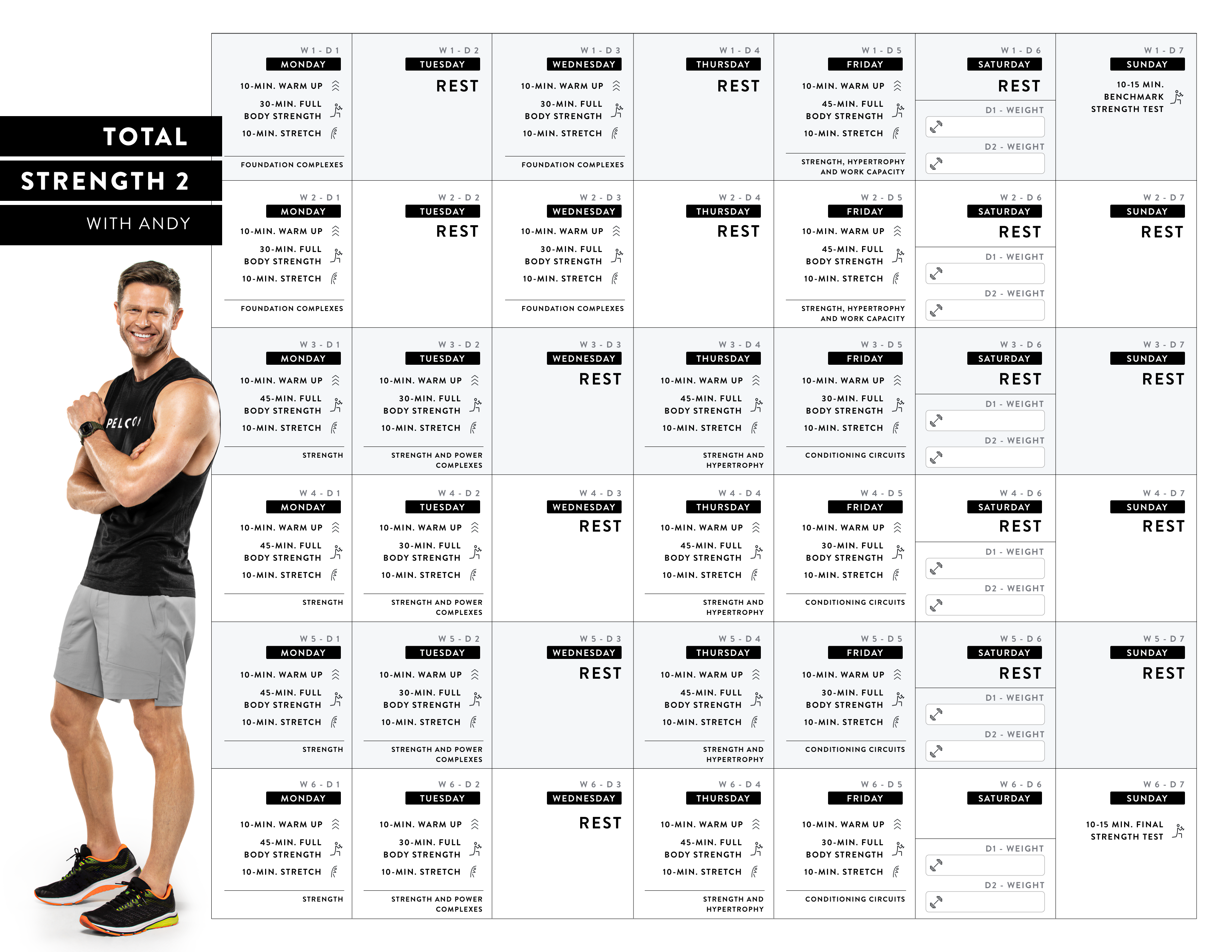In Total Strength, you built a foundation. You dialed in proper form for the squat, deadlift, press and row. You also felt the benefits of sticking to a structured, progressive approach to strength training. Total Strength 2 follows suit and takes your training to a new level. I am so pumped to be your coach for this six-week program as we continue to build strength and add power and conditioning elements to your training!
If you haven’t taken Total Strength, I recommend you take the four-week program before jumping into Total Strength 2. It’s not mandatory, but you’ll find it beneficial, and the foundation you’ll lay will carry over seamlessly.

The Structure
Total Strength 2 is an intermediate level program, where we’ll amp up both the intensity and technical difficulty.
The program spans six weeks. Weeks 1 and 2 each have three classes:
Two 30-minute complex days
One 45-minute strength day
Weeks 3 through 6 have four classes each. All the training days are full body, but each has a specific focus:
Day 1: 45-minute strength
Day 2: 30-minute power and strength complexes
Day 4: 45-minute strength
Day 5: 30-minute conditioning circuits
Starting in Week 3, the first class of each week your training focuses specifically on your strength test. Day 4 of each week focuses on general strength and hypertrophy. You’ll perform your strength test—which is a six-minute AMRAP [as many rounds as possible] of single-arm shoulder presses and reverse lunges—at the end of Weeks 1 and 6.
“How do I incorporate the program with my other Peloton classes?”
Here are some guidelines. I recommend two to four cardio days per week, broken down like this:
Early in the week, tackle your higher-intensity classes. (In your weekly training cycle, think days one, two or three).
Keep the duration of these short, 20 to 30 minutes max.
You generally only need one high-intensity cardio day supplementing this program. This includes HIIT runs or rides, or any cardio where you’re pushing towards spikes in your heart rate.
The remaining cardio days should be moderate-to-low intensity. You can plug these in on days three through seven.
Pick any ride or run you want, but keep the intensity moderate and mix durations from 20 to 45 minutes.
Walks and hikes are a fantastic way to incorporate low-intensity cardio during the program. You can plug these in any day!
Some Final Reminders
Remember, the focus of this program is strength, and you will get plenty of cardio in these classes, especially the 30-minute complex and conditioning days. As always, do your warm ups and stretches. There is a 10-minute warm up and stretch as part of the program, but you can use any one you want. Just do ‘em.
Every lift has a purpose. Every class has a specific focus. In addition to getting stronger, you will become more powerful and improve your conditioning. You’ll build your neuromuscular coordination, helping build overall athleticism with a huge carryover to sprints and speed training on the Tread, Bike and outdoors.
This is truly a program that delivers on all levels. I can’t wait for you to step into the challenge of Total Strength 2!

*Consult with your doctor and consider your underlying medical conditions, including pre-existing cardiac and orthopedic conditions, before trying this program and taking any Peloton classes.
This content is for informational and educational purposes only and does not constitute individualized advice. It is not intended to replace professional medical evaluation, diagnosis, or treatment. Seek the advice of your physician for questions you may have regarding your health or a medical condition. If you are having a medical emergency, call your physician or 911 immediately.



